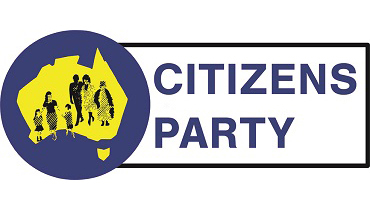The Australian Alert Service is the weekly publication of the Citizens Electoral Council of Australia.
It will keep you updated of strategic events both in Australia, and worldwide, as well as the organising activities of the CEC.
To subscribe to the Australian Alert Service, it's easy, and it's secure.
Click here for subscriptions within Australia
Click here for overseas subscriptions
16 October 2019
Vol. 21. No 42
Five years ago Australia’s big banks were among the world’s hottest stocks, with share prices and dividends double the global average. This status was due to government support to prop them up during the global financial crisis and forcibly expand the housing bubble, which made them appear to be the strongest and most profitable banks in the world. International investors were so keen to buy their shares and lend them money to fuel even more mortgage lending that for a short time CBA became one of the world’s 10 biggest banks by market capitalisation.
Based as it was on a growing bubble, however, that was never going to last, and it hasn’t. The government, banks and regulators continue to talk up the Australian financial system to the Australian public, but the international investors who couldn’t get enough of Australia’s banks in 2014 aren’t buying it. As The Australian reported on 9 October, Copley Fund Research reports that 91 per cent of major global funds now have zero exposure to Australia’s banks, “the lowest take up on record”. Copley Fund Research analyses investment funds with a combined value of $1.2 trillion. CEO Steven Holden said: “Regulatory concerns, faltering housing markets and a low interest rate environment has prompted global investors to all but throw in the towel on their Australian bank investments.”
Holden is describing the preconditions for an imploding bubble.
Australians should see this as a warning sign, like the tide disappearing before a tsunami. Don’t expect the government and financial authorities to be honest, not least because most of them would be in denial, unwilling to admit the danger to themselves.
They also don’t understand economics. They think of the financial system as separate from the physical economy that produces food, clothing, shelter, energy and transport—which it no longer serves—and as some kind of a machine with levers for interest rates, the exchange rate and the money supply, etc. that can be tweaked to keep it running. This mechanistic approach gets ridiculous. The RBA for instance is focused on achieving 2 per cent inflation, as that is regarded as a corollary of economic growth. It would be like a racing driver focusing on rpms, rather than speed and direction. When tweaking doesn’t work, they just pull harder on the same levers, pushing interest rates negative and dropping the exchange rate to “import” inflation. Why would higher petrol prices be good for the economy? Because it would help the RBA raise inflation to meet its target! If this sounds nuts to you, it’s because it is. And when the machine starts breaking down under the stress, they put on bandaids like bail-in and the cash ban (see Almanac), to try to stop the oil leaking and steam erupting.
That same mentality is pushing Australia closer to the most desperate measure of all, quantitative easing (QE) a.k.a. central bank money-printing. The banks, while still trying to maintain the façade of being strong and sound, are proving they are not because they are the ones pushing for it. ANZ CEO Shayne Elliott, who also chairs the crooked Australian Banking Association which is trying to get away with a dodgy Banking Code of Practice (p. 3), has called on Treasurer Josh Frydenberg to convene a summit on zero interest rates and QE. “QE is new territory for us but it’s not new territory for others”, Elliott told the 10 October Australian Financial Review. Elliott is trying to keep his voice steady, but this spells panic, which is global. In the USA, the repo market black hole continues to widen, forcing the Federal Reserve to announce yet another extension of its liquidity injections, to January, and its own return to QE in all but name.
Instead of extreme mechanistic stimulus, we need to restructure our economy to achieve physical, not financial, growth. Citizens must fight for policies that serve the people—one reason for the CEC’s name change to Citizens Party (p. 14).
In this issue:
- New Code of Practice shows bankers have indeed learnt from royal commission—how not to get caught!
- ANZ changes to deposit T&Cs would facilitate ‘bail-in’
- If Australia wants a dairy industry, we must re-regulate now!
- Mr Morrison: Is it ‘in our interests’ to bow to BIS dictates?
- Shameless media bias in Ecuador and Hong Kong revolts
- Bank crimes once stopped by Glass-Steagall keep getting worse
- Will Indian financial crisis revive bail-in bill?
- China continues to crack down on its shadow banking sector
- Trump pulls the plug on endless Syria war: what next?
- Is New Zealand already a fascist police-state?
- Cash ban stirs up the ranks, across political divides
- The Extinction Rebellion paradox
- ALMANAC: Fight the totalitarian ban on cash!
Click here for the archive of previous issues of the Australian Alert Service








